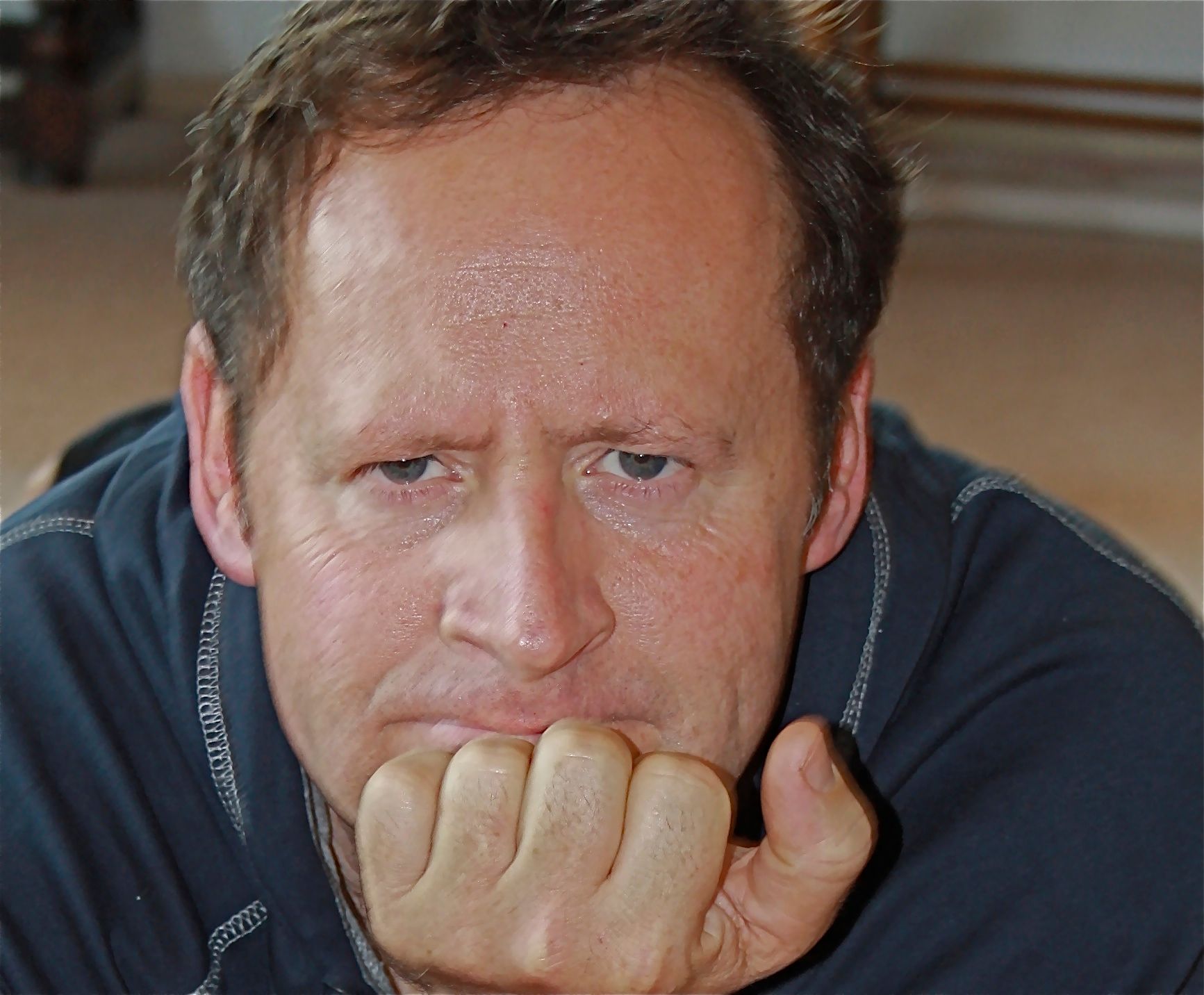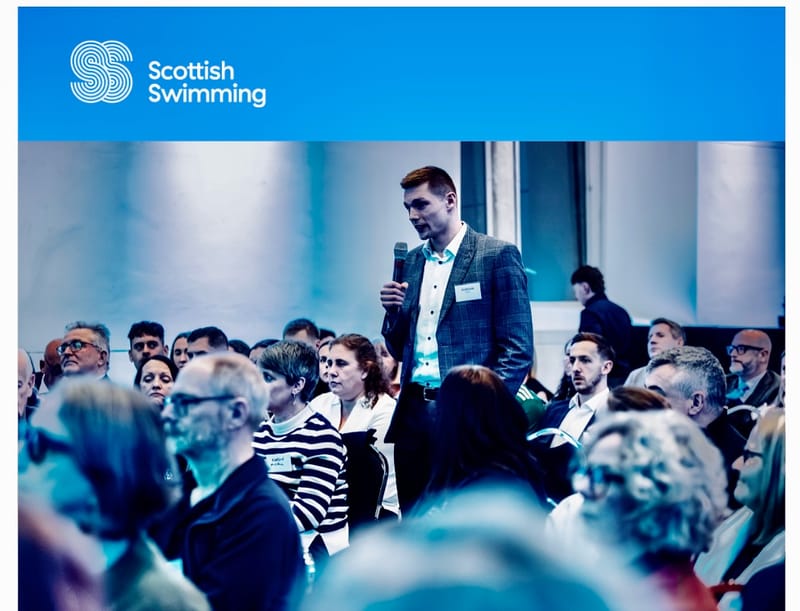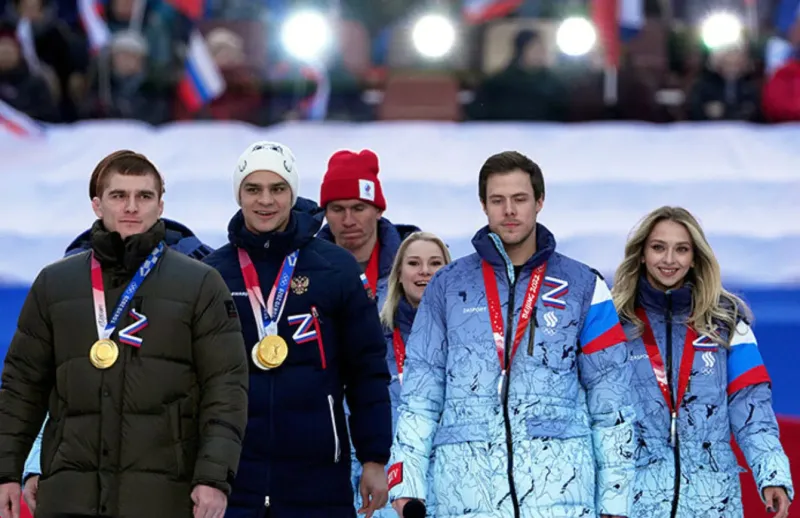Adam Peaty & The Depth Of CALM In Pursuit Of Balance In Water & Life
The British ace completed a heartening World Cup tour last weekend in Toronto, but the times on the clock & finishing places pale on the scale of purpose when set against his other October mission, working with suicide-prevention charity CALM on life-saving and shaping skills
WEEKEND ESSAY
October marked Adam Peaty's first competition since the Paris Olympic Games, and the happy, at-peace look on his face after his sprint efforts in Toronto last weekend spoke volumes about the British ace's personal journey and growth:

From Peaty's perspective, as described to SOS, the cup tour was not a "stepping stone" to what would be his fourth Olympic Games at LA2028. He was there to live a moment, the present moment, in the life of a professional athlete, his focus on the process of a steady return to a shape fit for a fight somewhere down the line when the biggest 'after-burners' sprint breaststroke has ever known will fire once again. That perspective:

October was about much more than the Cup, though, and this year will not end before Peaty awards for the first time, his marriage to Holly Ramsay due in December. A different kind of golden day is on the horizon.
There was another one back on October 10, the official World Mental Health Day of the World Health Organization (WHO).
Here are the highlights of my latest interview with Adam Peaty, which speaks to where he's been, where he is, and the lessons that will guide him to where he's going - and why those are invaluable to many others along the way.
CALM in the Storm
At a time when the numbers contemplating suicide have risen to 1 in 4 in the UK, with 16-34 year-olds particularly vulnerable according to the NHS’s latest findings, the three-times Olympic swimming champion and six-times Games medallist for Great Britain, believes that the ancient Greek philosophical maxim ‘know thyself’ is more important than “know the height of this mountain, the size of that lake”, and other staples of the school curriculum.
Adam Peaty has urged education bosses to replace some traditional school subjects with lessons in the lifelong skills and strategies that he says helped get him back on the Olympic podium at his third Games in Paris last year.
In an exclusive interview with State of Swimming, Peaty, 30, says he worries about “young people”, not least of all his son with Eirianedd Munro, George, who turned five this month, and the children he hopes to have with Holly Ramsay, who he will marry in December. Says Peaty:
“There’s a lot of hopelessness, mental health problems, pressures from social media to perform and live up to the expectations of others, people just not finding the balance needed for a healthy life. I worry about young people. I worry for George, and I worry for - hopefully, God willing - our future children because the world has changed so much. A lot of it comes down to external validation from social media.”
That, along with rejection, career progression and sexuality, are among topics the World record holder tackles in partnership with suicide prevention charity Campaign Against Living Miserably (CALM) for its ‘Deal With It’ program, which offers practical guidance on how young people can better manage their mental health.
Peaty points to “anxiety of the future, anxiety of how society views others, why are we feeling that way about society, where does it stem from, how do we control it, and how do we find a way through?”
Asked if he thought that the lessons he learned through his own physical and mental breakdown in 2022 and the kind of expert guidance CALM provides, Peaty said:
“Absolutely. Why are we bothering with all these subjects we're not going to use throughout the rest of our life, especially with the rise of AI, which can answer the questions far better than me. Is society becoming one that needs to be more in tune with critical thinking. And one that is more in tune with mental health and strategies or are we still on the current system of ‘knowledge-based’. Which one is going to serve you better?"
He points to the key script on the Temple of Apollo - "Know thyself" - for the answer:
“I believe it's one which asks you to know yourself instead of knowing or trying to know everything or one a master of all trades. Again, it’s about strategies.”
"Nothing in excess" are the trickier words on the same temple when it comes to the mindset of an elite and driven athlete. Peaty will speak to that, but before we get there, here he is, a swim ace, in tandem with cycle ace Bradley Wiggins, talking of the skills and tools advocated by CALM in its work with sports stars who have experienced burnout, breakdown, and then reached for ways out of the hole they found themselves in:
Tools To Deal With Stress - & Dealing With It, Not Running From It
Deal With It provides the tools to help, giving you the skills that will help you make good decisions, even when life feels really hard. Think of this as your cheat code to a happier brain and a way to demystify DBT (Dialectical Behaviour Therapy). The following is helpful to all of us, and in sporting terms, it is not only Athletics who might benefit from awareness of the issues raised by CALM, Peaty, Wiggins and others: coaches, the group of people who often work extremely unsocial hours and, as Glenn Smith, the chair of the British Swimming Coaches Association, put it in a recent post on social:
"Today's thought: It's funny - coaching can become an all consuming profession. I gave it everything for 27 full time years, and I loved every minute and I think I did ok! But did I look in the mirror at myself, probably not, I became diabetic, overweight and anxious. I just told myself it goes with the territory! Only now in semi retirement have I realised that health is everything. Coaches - take care of yourself ..."
Related reads:
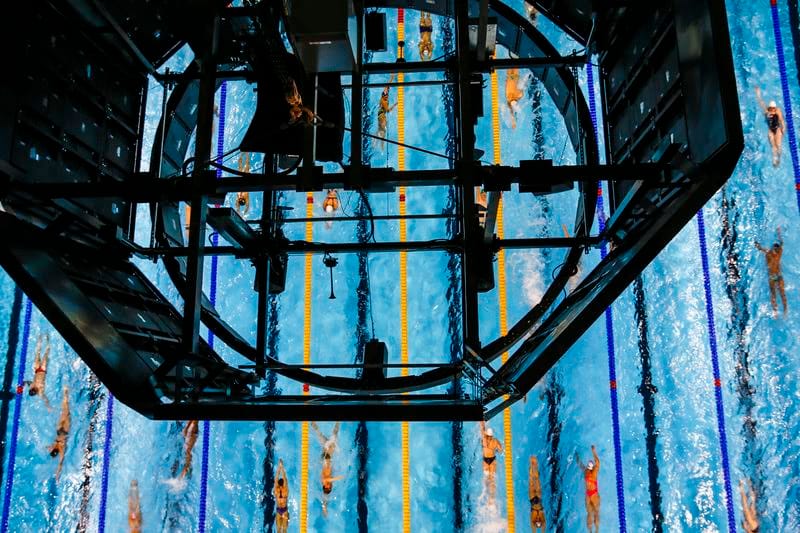

The Interface of Mental Health & Sport: Skills Forged In The Pressure Cooker Of World-Class Performance
In the following videos, in which Peaty and Wiggins talk to young creators about their experiences in life and the skills and tools that help them 'deal with it', the issues raised by the two ace athletes are strikingly close on many points.
Peaty, who talked to the young folk about their experiences and how to overcome a breakdown/depression, anxiety and much else, said:
“It's been a real privilege to work on ‘Deal With It’ alongside Barney, David, Jack, and Sophie. Having conversations about difficult emotions, learning skills and practical tools to help deal with them, is hugely important, especially for young people who find themselves faced with huge levels of pressure and change. I hope this series can be a helpful introduction to managing your mental health and dealing with what life can throw at you.”
Simon Gunning, CEO of CALM, also noted:
“Young people can find this time of year particularly difficult, whether that’s dealing with the pressure of exam results, navigating moving home for the first time or simply trying to find where they fit in the world. You aren’t taught how to deal with and talk about emotions that arise from what life can throw at you. ‘Deal With It’ wants to change that by showcasing practical skills that can make a real difference to young people’s lives.
"Suicide is now the leading killer of young people in this country, so it’s vital we find ways to intervene. We’re hugely grateful to Adam for using his platform to make a real difference, and to Barney, David, Jack, and Sophie for being so generous in sharing their own experiences.”
Conversations with Adam Peaty:
How Barney overcome uncertainty:
How Sophie beat her fear of rejection:
Jack talks zooming out on life
David: The power of journaling:
Valuable skills and tools, with Bradley Wiggins:
Bradley Wiggins and Ben Wiggins chat highs, lows and coming out the other side:
Can a couple of ice cubes REALLY help change your mood?
The stress reliever that Bradley Wiggins gave a 9 out of 10:
Did you know focusing on your breath control can help you feel more in control of your emotions...
The skill you need if things feel too much and your mind is racing:
You can find many more CALM tips and tools, like that below, at the CALM YouTube channel:
Peaty points out that the Deal With It tool kit is not a one-shape-fits-all approach to mental health and wellbeing, each life, each story, unique, and that in this specific way: "It's about having a purpose ... and that's different for each of us, and places different demands and stresses on us in the context of our lives,” says Peaty, who is careful to note that his own challenges and solutions offer guidance not a prescription to 'follow a model'
Purpose is "a very complex question. I can only answer on my behalf and not anyone else’s" he adds, while noting that the skills and tools he's talking about are pertinent to most of us, one way or another.
"I think people are very fortunate to go through life if they never have that crisis moment.” - Adam Peaty
The 2022-23, his burnout and the consequences of it unfolded in the dark, and by the time he spoke openly about it, he was already taking the first steps to recovery.
He recalls the morning training session in which, for the first time in his career, his goggles filled up with tears. He found himself frozen, unable to go on.
"I asked myself ‘are you ok?’ It was the first time in my career, and the only time in my career, that said no. It’s a very painful thing when you don't have that purpose, It was just stripped from me because I was so exhausted from the cycle of the sport, I was frustrated with various things in the sport, how the sport has been treated or mismanaged in a way we’re both aware of and I don’t want to go off on that tangent right now, but all these frustrations really do add up, and that’s how a lot of people are feeling, especially with Society as it is now, no matter what age you are. There’s a lot of hopelessness … with problems mental health-wise, social media, just not finding that balance. My way of dealing with it, and everyone is different, was to just take a rest … the rest gives you so much more endurance long-term."
His success in sport had both brought his breakdown to a head and taught him how best he might get out of the doldrums. Faced with any challenge, “straight away my head would be telling me, ‘well, you're not pushing hard enough’.
"That's me, but for someone else in a different situation, it's ok not to feel that way, not respond that way, because that’s their life. For me, I push the edges of what the human body is capable of. For example, the triathlon* ... for an hour straight, on the run, I was 190 heart rate or minimum 183."
Not an easy ask! Peaty is a world-class athlete, of course, but he's a sprint force not an endurance ace. He competed in his first triathlon a month ago to help raise money for charity as part of Team Ramsay efforts with his father-in-law-to-be, super-chef Gordon Ramsay. Peaty adds:
"I push it to the edge. I could have stopped and said ‘this is a serious moment’ but that isn't me. Reflecting on that, when you're pushing yourself like that every single day for years and years and years without a proper break, there is going to be a moment where your brain starts to really question why you're doing it."
Peaty cites Viktor Frankl's "Man's Search for Meaning", the 1946 book chronicling the author's experiences as a prisoner in Nazi concentration camps during World War II.
Frankl, Jewish and a Holocaust survivor, describes his psychotherapeutic method, which involved identifying a purpose to each person's life through one of three ways: the completion of tasks, caring for another person, or finding meaning by facing suffering with dignity.
A prime example of something similar from Peaty's own sport is fellow breaststroke specialist Alfred Nakache, who swam for France at the Berlin 1936 Olympics and then the London 1948 Games, as one of only two known Olympians to survive Nazi concentration camps.
Deported to Auschwitz in January 1944, Nakache was separated from his wife Paule and their three-year-old daughter Annie. They died in the gas chambers there, while Nakache, whose story is told in the 2001 film “The Swimmer of Auschwitz” survived as a ‘useful worker’. One of his tasks was to maintain and clean the giant water tanks at the camp. While doing so, he made a regular swim his purpose and therapy, out of sight for as long as he could, on every day he had the opportunity.
Related:
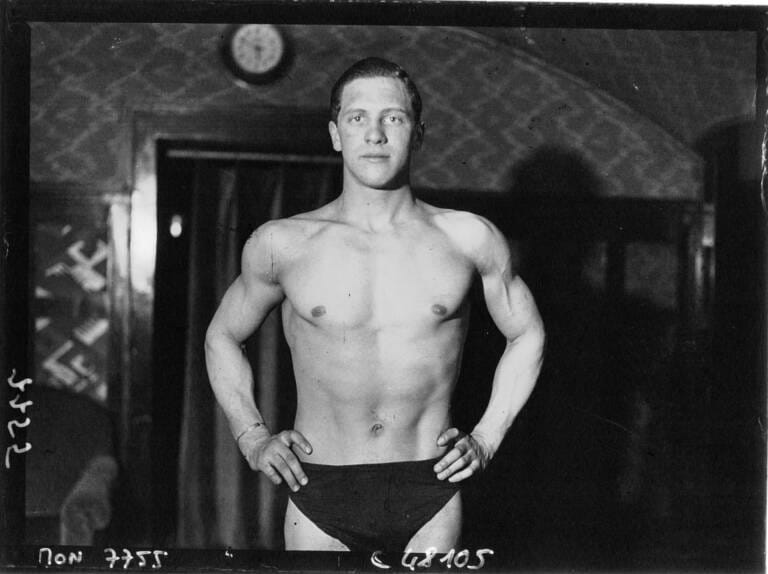
Frankl wrote:
“Everything can be taken from a man but one thing: the last of the human freedoms—to choose one's attitude in any given set of circumstances, to choose one's own way. When we are no longer able to change a situation, we are challenged to change ourselves.”
Says Peaty:
"So it's 2022 and I just came off World Championships in Melbourne and I stayed out in Australia, which was a now, looking back, a massive mistake, because it created a lot of guilt around not being there for George but also, it was just too long to be away from home and everyone that I had that close relationship with. I was going through so many things personally. I had to deal with it in my own way.”
From the Devil On His Shoulder Back To The Deep Blue Pool Of His Passion
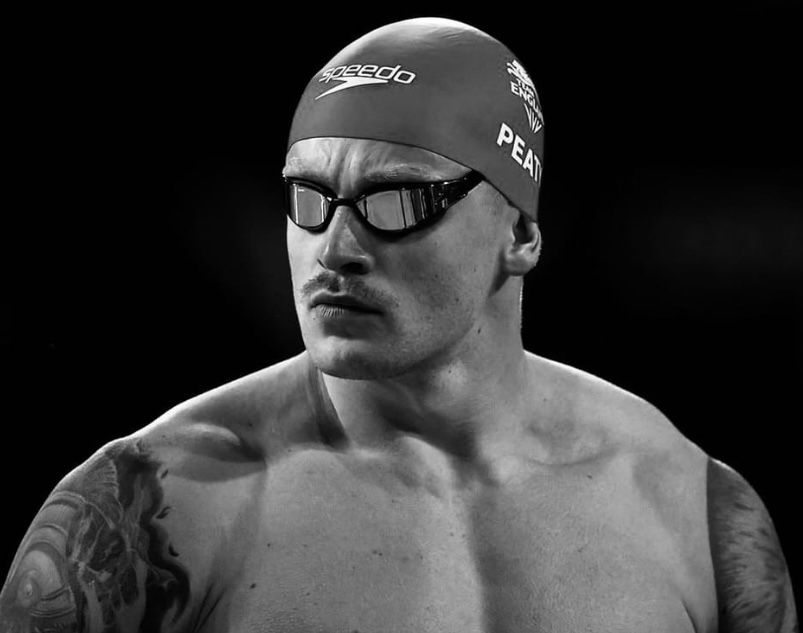
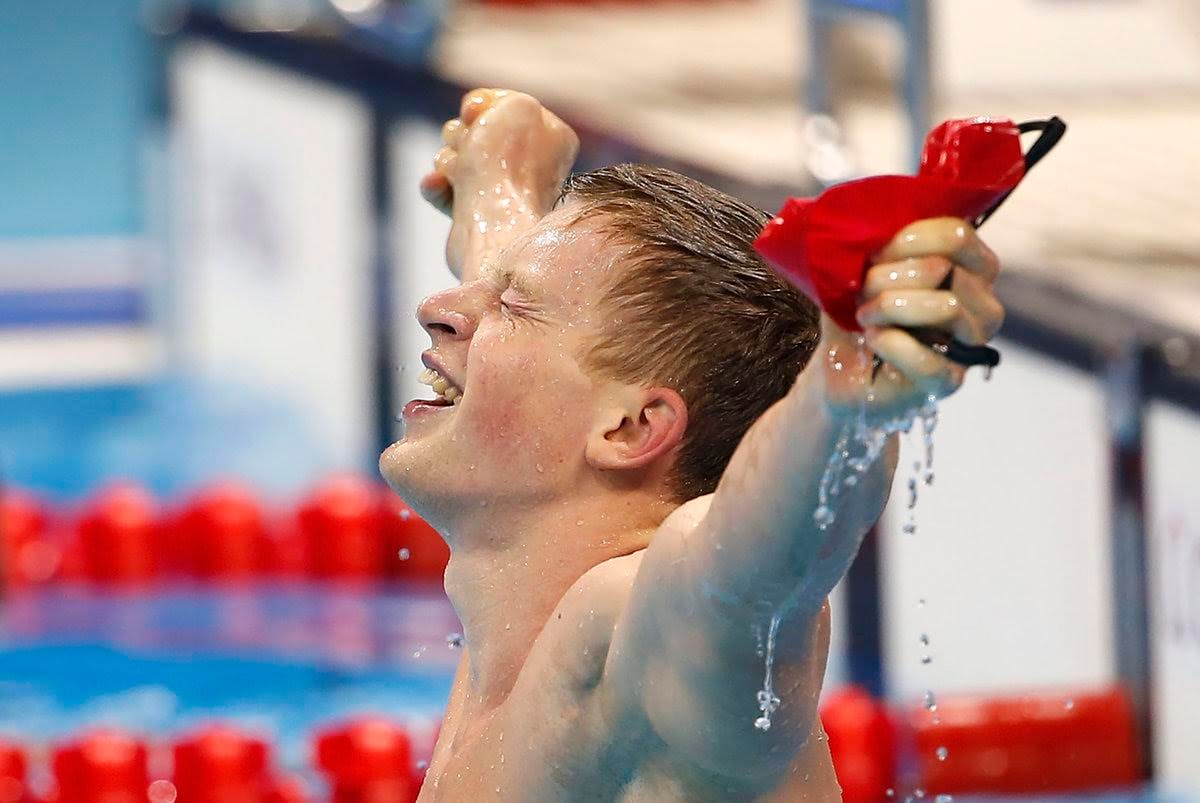
Peaty recalls ...
“... the moment I took a break and I could start to do simple things again, like going into the garden, digging stuff up that I’d been putting off for weeks, or months, and just doing simple things. That was my way of dealing with my kind of crisis.
"When you go into this Sport and you're doing thousands and thousands of metres - I always call it following the black line because that's what it is, even this morning, even in my ‘off-season’, I went to Repton, did my training session with [coach] Jaime Main, and I loved it and I was like ‘what a fortunate position, I’m in, at 30 years old, I'm loving the sport more than ever.”
A part of the reason why speaks to something he's had all the way along the course of his career, something he appreciates now more than he ever had" 'team' support, meaning, family, including his parents, his famous 'Olympic nan', and his siblings; his coaches, the experts he works with, more recently, the pastors who held his hand on the road to faith and the Christian mission that's been something of an epiphany for him.
He shares his faith with Holly and the couple will be married by one of the two members of the clergy who most closely guided him, as he puts it in a tattoo on his torso "Into The Light".
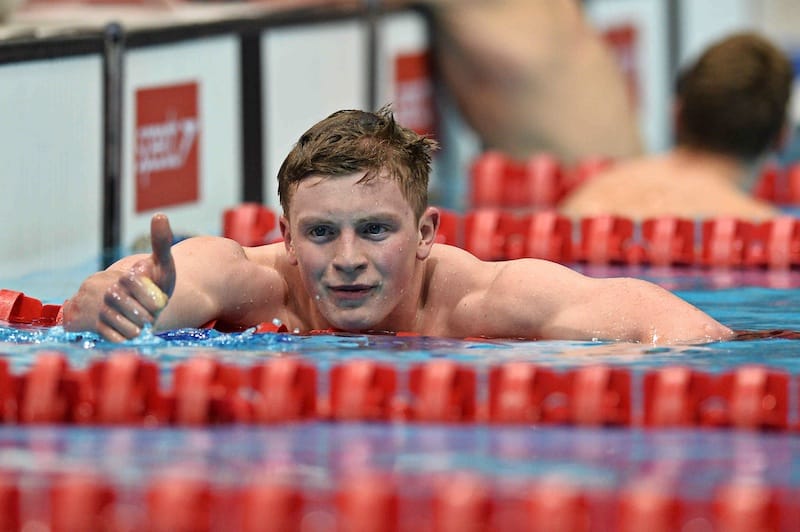
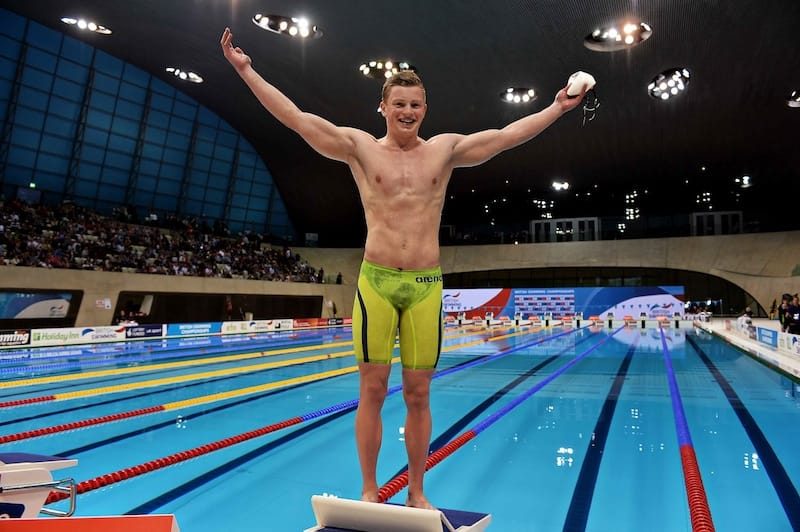
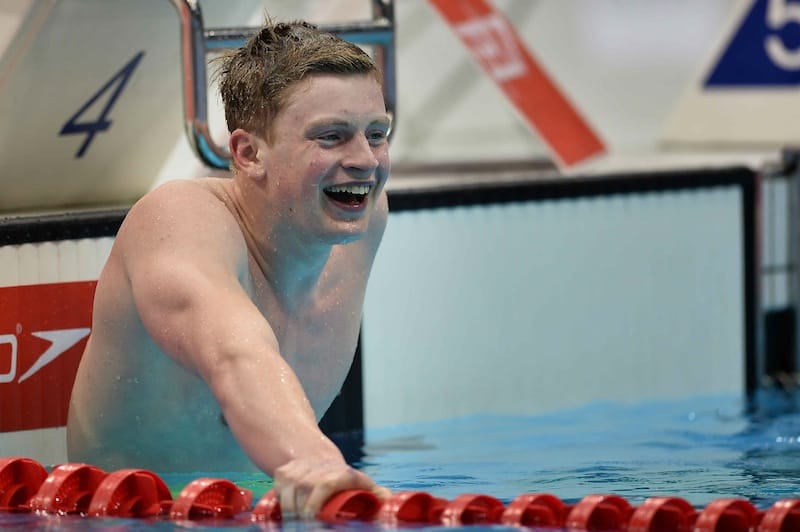




Highlight snaps from the voyage boy to Olympic champ, World record holder, pioneer double Olympic champion, recovery from burnout and Into the Light of purpose, at AP Race, with co-founder, CEO and former International Ed Baxter
In Holly, Adam not only found the love of his life but the embrace of a new family that already knew a thing or two about pressures, fame, and the rollercoaster nature of fortune in life without giving any thought to the money that is so often linked to a word that means so very much more.
Peaty chose his words carefully when he took a question away and wrote down the words he then sent me in precisely the way he wanted it to be expressed:
"Both Gordon and Tana [Ramsay] have been incredibly supportive around what I do; I’m quite lucky that they are used to being in high performing environments. Regarding the family as a whole, they are very competitive; so I fit in quite nicely! Holly says she isn’t competitive but she can’t even lose a game of tag!
"When it came to Paris [Olympic Games, 2024], I almost went into a faraday cage - not many comms were going in or out; just so I could dedicate every bit of focus to my performance and recovery. But, as we look onwards to the next Olympics - I’m sure, lots will change. My circle of key people will probably not change much, but if they did, it’s because I have also changed along this journey too.
"We are always looking for the best possible outcome as athletes and we must live and breathe that through our day to day lives; such as managing and improving relationships, being challenged when necessary and also knowing when to unwind with those you love. Thankfully through my own parents, Holly and her family I am fortunate enough to strike the balance!"

Holly Ramsay and Adam Peaty on their October 2025 visit to the Chicago Bulls during World Swimming Cup Tour in North America - images courtesy of World Aquatics
That Peaty responded to a specific request from me in specific circumstances and in the way he did provides fine insight to the maturing and maturity of a man who rocketed to world attention as a teen and will be 32 by the time Los Angeles hosts the 2028 Olympic Games.
In bygone decades, 32 would have been 'over the hill' in swimming. The world and swimming have changed; there are far more opportunities for professional athletes, holding hands with deeper understanding of 'athletic longevity', sports science and related.
Peaty is embracing his opportunities to the max as a result of his experience and how it guided him to a business model - with teammates and some of those closest to him at AP Race - that has inspiration and passing on the skills and strategies he has learned to the next wave and the next.
Does he consider sport to be something of a classroom for life skills and strategies? Peaty nods, smiles and says:
"Absolutely. when we do our [AP Race] clinics, for example, I always say that sport is probably one of, if not, the best things for children because you do learn that emotional intelligence; you do learn how to critically think,; you do learn how to goal set; you learn how to deal with certain scenarios, traumas, such as dedicating your life to something but not getting a result, for example.
"That's a trauma because you're dedicating your whole existence to this one goal, which is crazy when you think of it. But it's also an ability, an ability that stretches to being able to look honestly at the reality in front of you."
In swimming, the time on the clock is such a reality, he notes: “The clock is not going to lie. Hopefully. I've only had one time in my life where [there's been reason to doubt it] ... but 99.9% of the time that is the truth. That is reality. Acceptance follows."
He cites his silver at Paris 2024, a third gold gone just 0.02sec shy, after victories at Rio 2016 and Tokyo2020ne.
"That is what you've got, and it's not what you deserve. It's not what you worked for … but you have to earn that on the day, you have to earn that within that moment and that is reality. Its presence. So I think going back to the original question, yes, there are so many things we can do."
One of those, advocated by CALM is something swimmers will recognise bu may not practice as a restart mechanism
THE DIVE REFLEX
"I wouldn’t say I use it often," says Peaty, as we turn to the mammalian 'dive reflex'.
Wendy Robinson, Services Director at CALM explains it well:
“Deal With It is all about tools to help people make good decisions, even when life feels really hard. One of those tools is all about temperature - a shock-the-system hack that can help to reset your nervous system when you’re feeling panicky or anxious. Cold temperature triggers your mammalian dive reflex - a super old alarm system in human brains; a survival instinct that all mammals have. This is triggered when you enter cold water, and can be recreated by anyone. Simply holding a bag of frozen peas or a pack of ice on your face for 30 seconds can do the trick!
"Your heart rate slows, and your “rest and digest” system is triggered - the opposite of fight or flight mode. That's great news for your nervous system because you instantly feel calmer and less anxious. It’s an amazing hack for when you want to regain control of your emotions.”
Says Peaty: "I don't really use it a huge amount, that kind of therapy, but I know it's obviously very important for a lot of people to explore" - and, the very thought of all those plunges into the training pool triggers this in him:
"For me swimming is an incredible sport because, as you say, Craig, and they're very pretty much spot-on with, as soon as you dive in, there's that moment of cold ... it's such a beautiful moment because it does shock your body into [action]. It shocks your brain, wakes it up and I love that moment."
THE RESET
We're speaking a few weeks before he will go on tour in Asia with the eponymous AP Race, a commitment that means he will train 10 or more training sessions around four days of clinics with swimmers of a variety of standards, including masters. In the midst of such a challenging schedule, he says "that actual dive in for me is a perfect moment to reset".
The ability to reset on a regular basis is a key mental-health skill.
In recovery from burnout on the way to his third Olympics last year, Peaty turned to his guide Stephen Peters, psychiatrist to star athletes in several sports, and author of The Chimp Paradox, and the man who played a big role in helping Peaty get back on track for a return to the Olympic podium at Paris 2024.
Peaty recalls that he once said to Peters 'you seem to have it all figured out ...] you know you're in your 60s or 70s...' ... "He's written all these amazing books on how the brain operates on the chimp level and worked with incredible people. But at the same time you're thinking he's got it all figured out, he goes 'No, like I still do three resets a day if I'm frustrated or something hasn't gone right. I reset and remind myself 'this is what I am; this is who I am - and that's okay'." Adds Peaty:
"And we forget that those resets don't allow anger to spiral, don't let frustration to spirals, don't let the highs spiral - because they're just as dangerous. So, there's a lot of things we can do a lot better and I myself personally, I could do a lot better, but it is, you know, as it is and we learn what works for us to find a way to be better. It is what works for you - and you have to find what that is. Self-talk is a huge one for me.
"It's almost like a diet. There seem to be a thousand diets out there but actually the only diet that works is one if you're looking to lose weight in terms of fat, it's less calories in, then you're expanding right. My opinion - and I'm kind of emphasising in bold ‘My opinion’ - is [this] approach: we need to keep it simple."
"For me, that means a lot of self-talk. I enjoy getting up early for that reason: this morning at 6:30, driving to Repton - 22 minutes..."
He pauses, says "or 20 minutes", but it's too late to hide the man who knows his clock. Those 22 minutes are ...
" ... my therapy: I put the music on; how we feeling today? Start to boot up the disc in my head. Why, what's my purpose today? What is my output? ... Every. Time. I look down that lane line before I dive in. Why am I here? And it could be as simple as actually saying 'I'm just ticking over and my purpose is to do the best tick-over I can do today'.
"Now if I'm looking for long-term therapy or I'm really having to deal with something, there's no better medicine than sport, because it's our natural way, our human instinct, how our brains think - movement makes things so much better; blood flow to the brain.
"Movement will help you to build that foundation to start to overcome. I'm fortunate enough that I kind of dealt with all my kind of 'worms' so far. Of course, there are still things that I want to push on and really deal with, but a lot of that is relationship-based. Can sport help that? Of course it can, because I can think a little bit clearer when I'm in the water or when in the gym. A lot also depends on what your support system is. And whether that is self or that is talking to other people; that's on you to really recognise."
"I do a lot of 'myself', because that's just the best way for me or me to deal with things. But, for example, last week when I was driving down to London for the triathlon, I was so frustrated in the car ... ridiculous. Holly could detect it, but I rang Ed [Baxter, co-founder and CEO of AP race] for an hour and got all this frustration out about certain things. That was perfect for me; like it just almost just kind of disengaged that part of the brain."
HAPPINESS
We talk about the pursuit of happiness and where to find it in challenging times.
"I've had some incredible conversations through 'Dealing With It', on the strategies we can use, including self love and self appreciation. Some days when I'm struggling, or things are going right, whether it's in business or whatever is in sport, it's like, ‘you know what - I'm loved, I'm happy, I've got this incredible life, I work hard. It comes down to what gives you peace.
"For me, peace is getting up in the morning and living by my values. I can look myself in the mirror and say, yeah, I work as hard as I can, I look after my family, I'm the best father I try to be, and then everything else kind of stems from that peace."
He reaches for an example of the difficulty of pushing oneself outside one's comfort zone.
"It’s a funny one, and people reading this may have their own strategies of dealing with anxiety, or dealing with what Society expects from them. Actually, it's just a fabrication. Why do we feel like we can't go into a supermarket and shout! Should you? absolutely not. But why not? Because once you start to ask 'actually, what's the worst that's going to happen?' you find you can push yourself out of the comfort zone. To do that requires a lot of growth, and a lot of confidence, a lot of courage.
"And to be brutally honest, it's very, very uncomfortable to do anything like that. So I think you only start to grow once you're uncomfortable. And when you start to initiate that process you'll find freedom."
AUTHENTICITY
You'll have heard the words banded about a fair amount in recent years. We know what it is, but how do you know what it means for you, and how do we hold on to it in a world that judges how it is that it would like you to stand out and whether you've managed to live up to that external expectation?
Adam Peaty starts by looking in the rear view back to his days as just one among many club swimmers, a time when he would have struggled to tell you who his authentic self was, even if others may have felt it easier to answer that question on his behalf.
"I think, when you're going through club swimming, it's like a microcosm of your own world: you go to school, then you are training, and then you see the same people every single day, but I guess that at that age you don't really know yourself, now that I look back on it. So, 'authentic'? I guess that was me, maybe, but as teenagers, there's that slight thing about being popular ... you try to be someone you're not, right?
"So, I'd say that was the least authentic part of my life, and actually, when I started to become successful in sport, that's where my authentic self probably came from, because I realised - in 2014, my kind of outbreak season - that if I wanted to sustain that progress, I'd have to think differently, I'd have to be mature. I was 19 years old, and at that age, some of my mates - and everyone else in my life, pretty much at that point - lived for the weekend. Let's go to gigs, go and do all this, that and the other.
"So I guess the authentic side for me came very, very soon because I had to get there; there was no other choice. It came out of a lot of pressures, on self, and it took a lot of ups and downs to find it. Have I found my authentic self now. I think at 30, I'd hope so, but it's a constantly ever-changing landscape: life presents us with so many scenarios, and the authentic you is going to have to navigate that storm."
"How you see yourself is not necessarily how other people see you. And so, there's a kind of pressure to perform ... I mean perform in the pool, and how people see me like this, and therefore think that I should be like 'that' [whatever 'that' is] but that's taking something away from you in a way."
"There've been moments in my life where, like everyone, I've regretted decisions but I've also made some amazing decisions, right? I don't ever feel like I have to change 'me' when I'm around people who think I'm something that I'm not. It's something I've grown into. There was a time when I was 20-21, after winning my first Olympics, when you go to all these different events, you get great sponsors on board, and you feel like you have to be someone else for them."
"That's still you; it's just a segmented part of your brain, where you're a little bit more professional. I came from a very normal background, like most athletes in this sport, but it's something that I've learned to understand, because when you're 21, you're not thinking 'how can I be a good role model?' It just doesn't exist."
"And Let's get straight to the media: 'Oh! you're such an incredible role model at 21' - and I'm like, 'I haven't even started my life yet; how can I be a role model?' And then, actually, when I had George, that was the first time in my life when I wanted to be a good role model in the sense that I could actually feel the emotional connection from parent to child. I could understand that connection, because my brain up to that point had been very selfish: It only cared about my performance, and my team and World championships, Olympics and whatnot.
"This sport is incredibly selfish but George's arrival was the first time where I was like, 'ok, I really do care about who I'm going to become, because every single decision I make ...".
Peaty peters out, the wave of thoughts too high to flow as one. He stacks them, weighs them and wades on:
"If I don't get a chance to tell that story to him in person, for whatever reason, because you've got to think of these things as a parent; that you know he can see me through interviews or see me through the things others have written about me. It's almost like archiving every single thing I say and do.
"You want to be your authentic self, and you know me, Craig, I like to add a lot of humour into everything I do, because I believe life is about happiness. Yeah, it's also about going through adversity, but don't ever let life knock you down. Life is going to make you - and why can't you laugh along the way.
"There are a lot of things that I've had to go through - and feel the pressure from, to experience how the world views me - but that didn't change me. My will changed me; and I started to change my world through it."
Back to CALM and his own long list of useful skills and strategies, Peaty repeats 'keep it simple', 'keep your eye on the prize':
"Yes, these therapies are great and even talking to a therapist or talking to people that you trust, or writing diary notes, whatever your strategy is, all great, but the output remains the same: finding that true happiness every single day in whatever you're chasing."
Peaty has a few things he's chasing but No1 seems to be beyond doubt:
"My pastor who is marrying me and Holly in December, says, happiness, true happiness - other than what I may think it is - is about how good are your relationships with the people you love? It's an incredible one that people forget, because it's more external than internal."
Peaty is likely to remind me of Peters and the need to for a daily reset habit but I conclude this essay with the following thought: On the scales of self-talk, self-love, self-awareness to the right, love of another/others to the left, Peaty gives the impression of a man who has found the place where he recognises the equilibrium he was looking for is tangible ... not just in the water, but in life.

